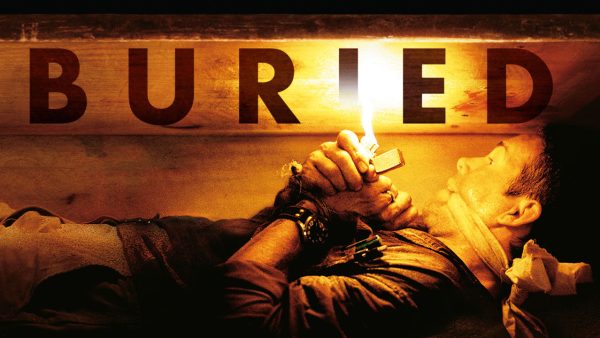Since its release in January this year, The Great Indian Kitchen has been one of the most talked about Malayalam films to come out this year. Audiences and critics alike have celebrated this monumental film that takes a completely different direction from the sensationalized, hero-centric, ‘masala’ films Indian audiences are used to. Most of all, The Great Indian Kitchen has started a conversation.
The Great Indian Kitchen (2021) Review!
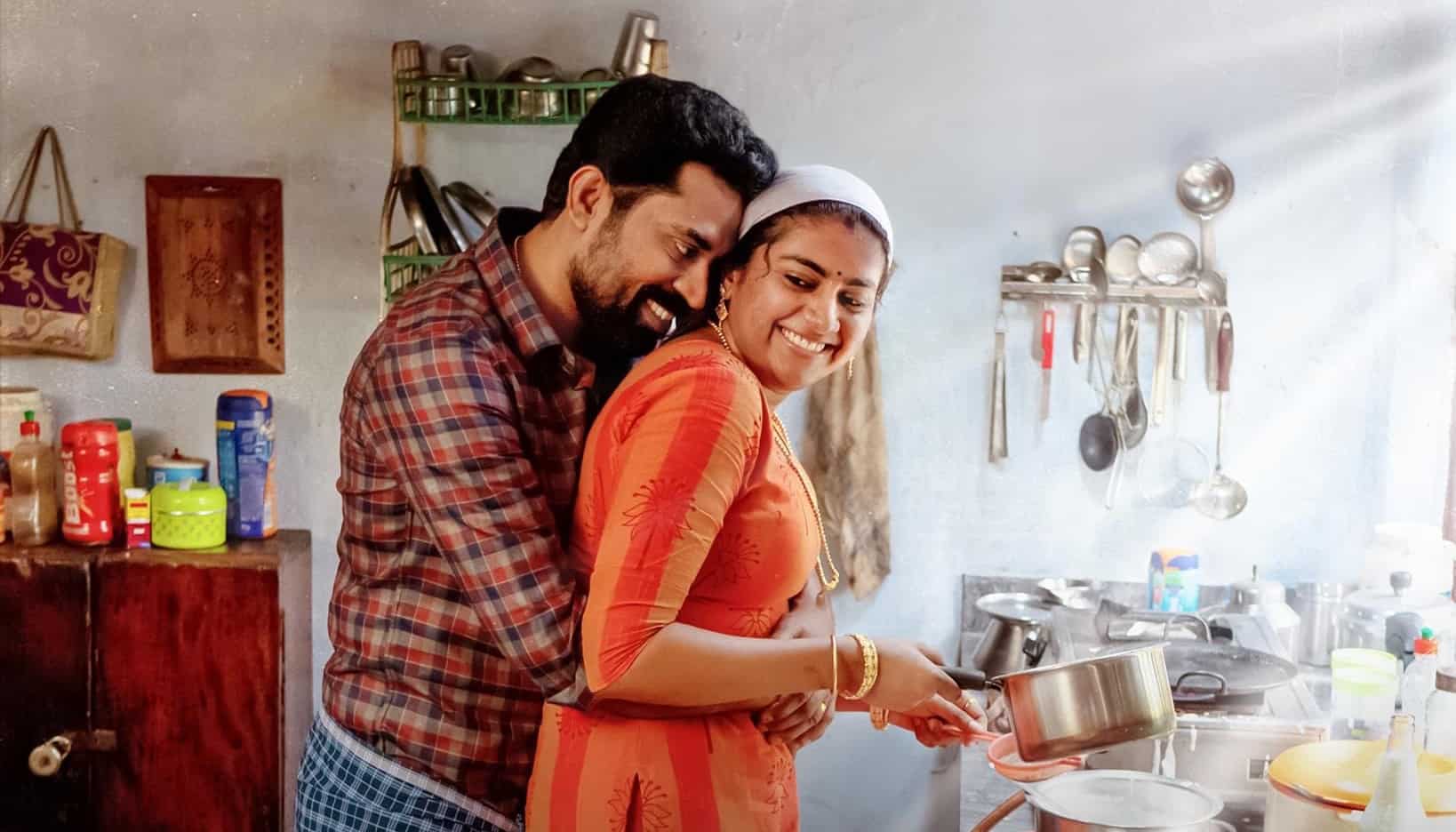
A down-to-earth film centered on a newly married couple, The Great Indian Kitchen is nothing like the love story you’re used to. The film opens with the wife, played by Nimisha Sajayan, swiftly whisked through the arranged marriage process. When she first meets her future husband at the pennu kannal (the ceremonious viewing of a prospective bride by the bridegroom’s family), she is told that she is lucky to be courted by a family this respected and prestigious.
Her wedding passes us by in a quick montage of impersonal rituals, and she’s deposited in a deeply patriarchal household. As the honeymoon phase fades, the wife is tutored by her mother-in-law to look after the men in the family’s every need. They eat after the men and clean after the men, while the husband and his father leave their chewed-up chicken bones and drumstick skins on the table.
Soon after the wife’s arrival, her mother-in-law leaves to look after her pregnant daughter, and the wife is left alone to handle all the household demands. As the film progresses, we see one micro-aggression after another push the wife more and more towards the edge, unfair demands thinly veiled under a veneer of politeness.
The father-in-law ‘requests’ a great many things from his daughter-in-law, only they aren’t requests at all. The toothbrush was only the tip of the iceberg; the father-in-law wanted his chutney to be grinded by hand and not in a mixer, his rice cooked on a finicky wooden stove and not in a pressure cooker. His clothes are to be washed by hand and not in a washing machine – despite the family clearly owning a mixer, a pressure cooker, and a washing machine. To the father-in-law, there is no dilemma. For him to enjoy marginally different food and slightly pillowed clothes, he has no qualms demanding the women in his family endure a lot more manual labour than they already do.
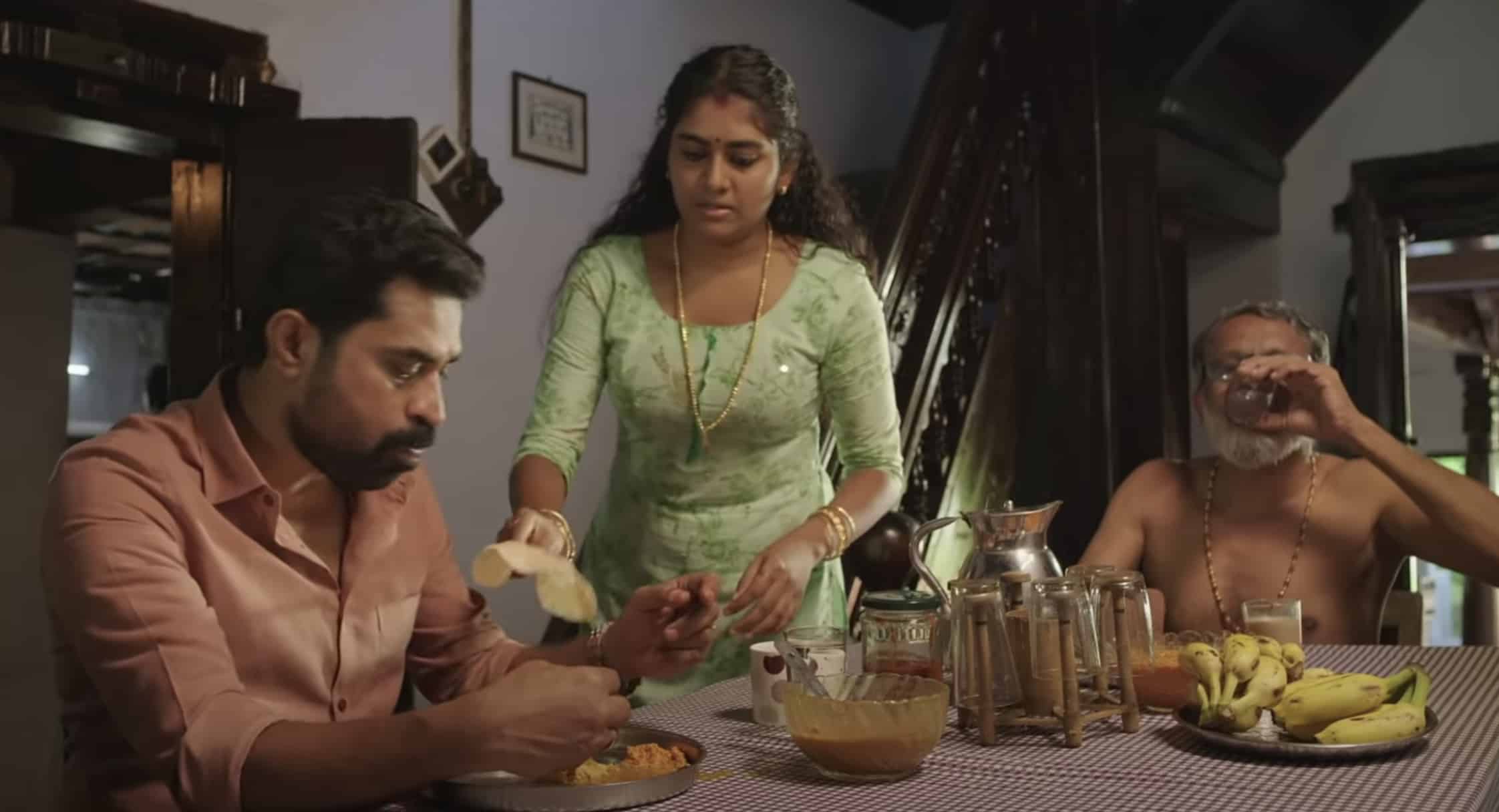
Without a doubt, the most important relationship in the movie is that between the husband and the wife. When they are first married, the husband seems almost romantic. He surprises her with shows of affection throughout the day… and that’s about it. Despite being newlyweds, the husband seems indifferent to his wife’s plight. He does nothing to stop his father from demanding more and more of his wife, forgets to call the plumber, and eventually flat out tells his wife he doesn’t care if sex hurts her.
Despite all this, the husband is hardly the picture of a villain. If anything, he seems like an everyman, not too different from our own fathers, brothers, and husbands. And this is precisely the point the film tries to make. Abuse does not have to be violent or sudden to be abuse. The entitlement these men show is always at the expense of their female counterparts and never at their own. They make no compromises and expect their wives, mothers, or daughters-in-law to accommodate their every whim.
The very normalcy of these patriarchal norms is what makes them insidious. For the women trapped in this system, slaving away when it is acceptable and being hidden away when they are menstruating, their experience is like a frog in boiling water. When they are first dropped in the water, they hardly notice the toll it takes on them. But as the water heats up, before they realize it, they are cooked to death.
The film also offers a peek into how other women fit into this patriarchal system. “Someone is there now to do all of it”, quips the sister-in-law, asking her mother to help out at her home during her pregnancy and presumably after it. With Airpods in her ears and wearing a comfortable maxi dress, the sister-in-law is an obvious allusion to the modernized urban elite. Despite this, she does not stop questioning the fact that she assumed the wife would fill in her mother’s shoes.
The relative who arrives to cook and clean while the wife menstruates certainly approves of and believes in this ‘tradition’. She even scolds the wife for hanging her underwear out on the clothing line and demands she dries them in a damp, dark room instead. Not only is this terrible for hygiene, but the implication that the wife is somehow loose for brazenly displaying her underwear outdoors is also simply ridiculous. This relative represents the women who have internalized patriarchal norms to the point where they don’t even see it as oppression anymore and rather simply as a code of conduct.
The Great Indian Kitchen (2021) – Ending Explained!
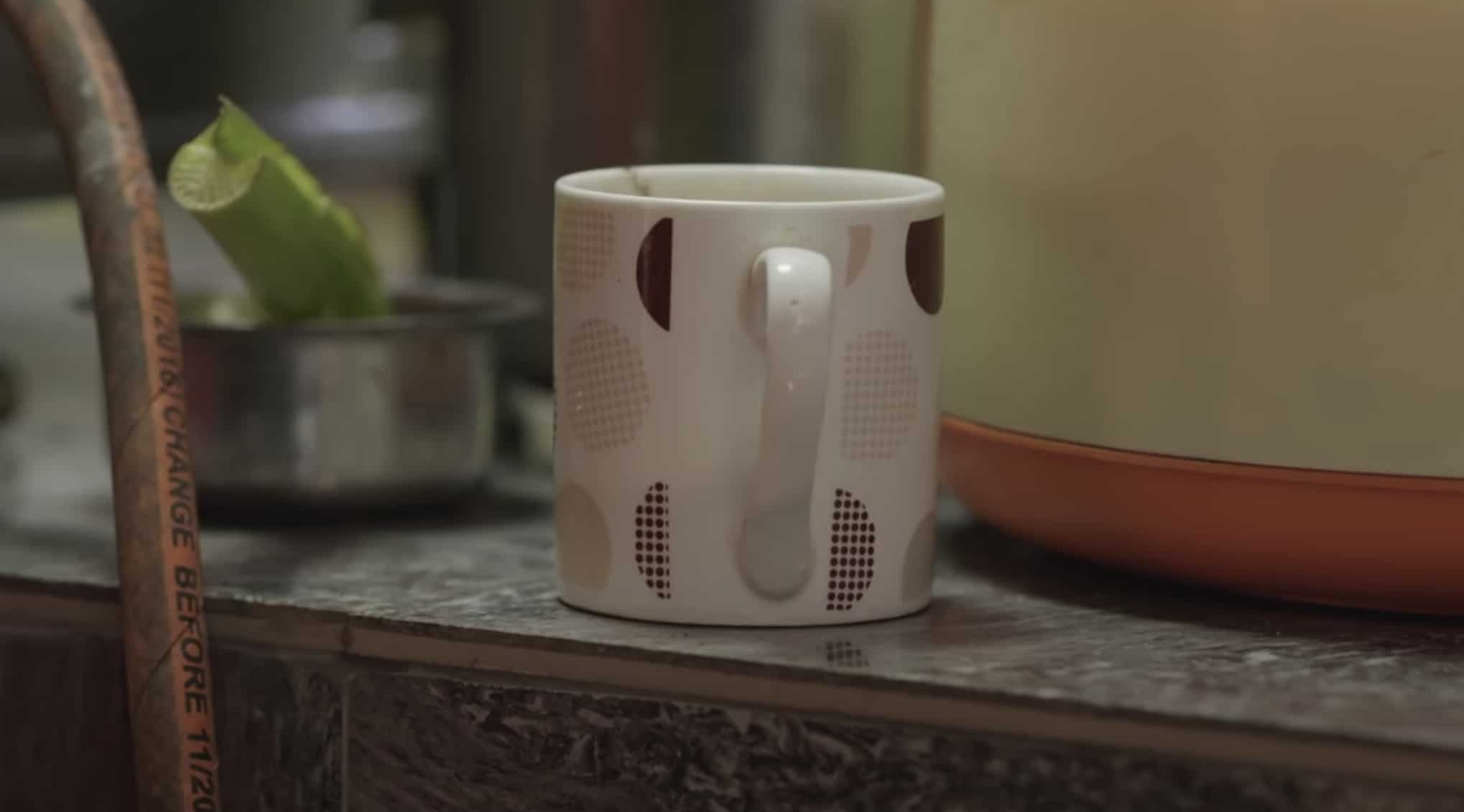
To understand the ending, we must understand that the wife was slowly but steadily pushed towards the edge by all of this. As all this tension builds and builds, at the climax of the film, it happens. The wife snaps. She grabs the leaking, grimy water bucket, fills teacups with it, and hands it to her husband and father-in-law. When this angers them, she spectacularly splashes the rest of the bucket on their faces and returns to her parent’s house.
But the wife does not receive the welcome she expects. Her mother pleads with her to go back, implying that marriage, no matter how abusive, is better than divorce. When the wife’s brother arrives and asks his mother to fetch him a glass of water, she screams at him to get him himself, recognizing her husband within her brother.
The movie’s last scenes show the wife becoming a dance teacher like she wanted and driving a car of her own, while the husband seems to have gotten himself a new wife. When he leaves his dirty cup at the sink, unwashed, it’s a message. He hasn’t changed one bit; the new wife is doomed to the same fate as the old.
The Great Indian Kitchen leaves its characters nameless for a reason. This is not a story about two specific people. This is a story about all of us and all the women who have suffered in silence and taken care of us despite years of exploitation and belittlement. Above all, this film is a prayer for a better future, and it is up to us to answer it.
The Great Indian Kitchen
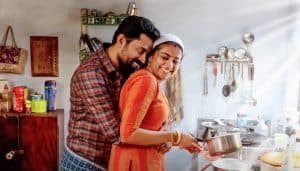
Director: Jeo Baby
Date Created: 2021-01-15 14:58
5


